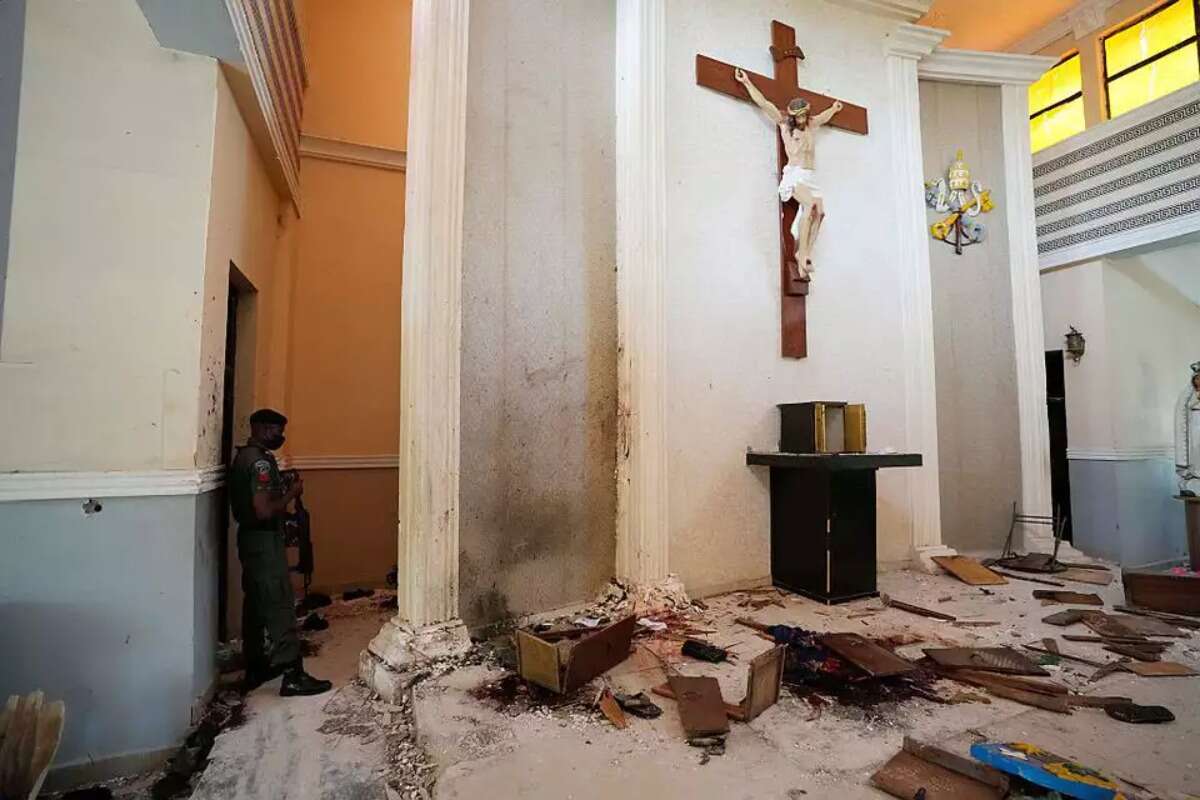A police officer stands inside a vandalized church in Nigeria. Photo: AP
President Donald Trump once again shocked the world when he issued an unmistakable threat that the US military would intervene in Nigeria if the country failed to stop attacks on its Christian communities.
“I am hereby instructing our Department of War to prepare for possible action. If we attack, it will be fast, vicious, and sweet, just like the terrorist thugs attack our CHERISHED Christians! WARNING: THE NIGERIAN GOVERNMENT BETTER MOVE FAST!” the president declared in a TRUTH post.
With this declaration, Trump has stepped into a deeply contentious issue that has become a rallying cry for parts of the Christian and evangelical right in the US. Last month, the conservative New York Post, known for its hawkish stance and willingness to criticize even the president, published an editorial urging him to intervene in Nigeria to protect the country’s persecuted Christians.
Video: Attacks on worshippers and churches in Nigeria /// Reuters
The paper claimed that a staggering 18,000 churches had been destroyed, 50,000 Christians murdered, and more than 5 million displaced by attacks carried out by Muslims against their Christian neighbors. It argued that while Nigeria’s government fights fiercely against Islamist terrorist groups in the country’s north, it has done little to stop armed militias of Muslim herders from the central belt who target Christian farming communities.
Leading the political charge is Sen. Ted Cruz of Texas, whose base includes evangelical Christians. Cruz has introduced legislation requiring the administration to classify events in Nigeria as religious persecution, demanding a US response, rather than as a conflict linked to climate change, as the Biden administration had previously described it.
Nigeria, with a population of 220 million, is almost evenly split between Christians and Muslims. The country has long faced instability from multiple fronts, including the extremist Boko Haram group, which seeks to impose its radical interpretation of Islamic law and has also targeted Muslims it deems insufficiently devout.
The violence in Nigeria is fueled by multiple factors. Some attacks are religiously motivated and target both Christians and Muslims. Others stem from resource disputes between herders and farmers, intercommunal rivalries, separatist movements, and ethnic clashes.
While Christians are among the victims, analysts note that most people killed by armed groups are Muslims in northern Nigeria, where the majority of attacks occur. Both Muslim and Christian communities have, at various times, accused the other side of committing “genocide” during bouts of religiously charged violence. These attacks are most frequent in the north-central and northwestern regions, where conflicts between predominantly Christian farming communities and Fulani herders, who are mostly Muslim, are widespread.
Joseph Hayab, former chairman of the Christian Association of Nigeria in Kaduna State, one of the areas hardest hit by insecurity, disputed claims of a “Christian genocide.” He acknowledged that thousands of Christians have been killed over the years but added, “Things are better than they were before.” Still, he cautioned that every killing must be condemned.
Whether the widespread killings and destruction in Nigeria’s central belt constitute an anti-Christian genocide or a land conflict between farmers and herders may ultimately determine whether Washington takes real action. For the victims, however, the legal definition matters far less than the devastation that has upended their lives.
Early voting closes with 480,000 ballots cast as Mamdani promising Netanyahu arrest faces ex-governor Cuomo’s comeback and Republican Sliwa who…
British Transport Police confirmed detaining two individuals while 10 people – nine sustaining critical injuries – required hospital treatment following…
US daylight saving time concludes Sunday, November 2, at 2 a.m. when clocks fall back one hour. Learn about the…
Analysis
Archaeology
Blogpost
Business & Finance
Culture
Exclusive
Explainer
Environment
Features
Health
In Brief
Jewish World
Judea and Samaria
Lifestyle
Cyber & Internet
Sports
Diplomacy
Iran & The Gulf
Gaza Strip
Politics
Shopping
Terms of use
Privacy Policy
Submissions
Contact Us
The first issue of Israel Hayom appeared on July 30, 2007. Israel Hayom was founded on the belief that the Israeli public deserves better, more balanced and more accurate journalism. Journalism that speaks, not shouts. Journalism of a different kind. And free of charge.
All rights reserved to Israel Hayom
Hosted by sPD.co.il
All rights reserved to Israel Hayom
Hosted by sPD.co.il
[contact-form-7 id=”508379″ html_id=”isrh_form_Newsletter_en” title=”newsletter_subscribe”]
All rights reserved to Israel Hayom
Hosted by sPD.co.il
